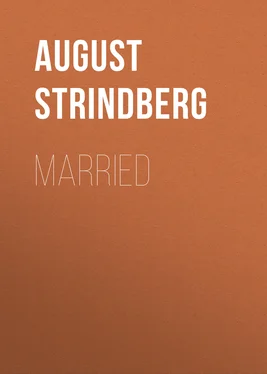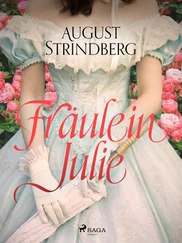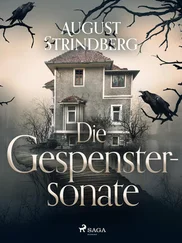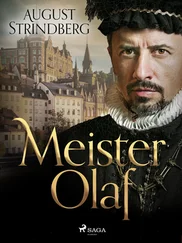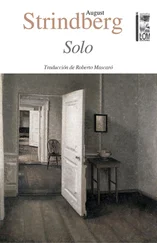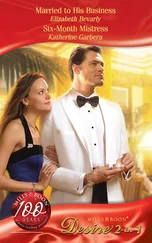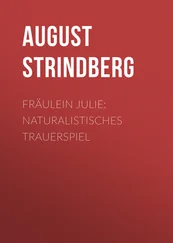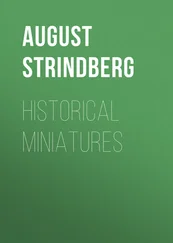August Strindberg - Married
Здесь есть возможность читать онлайн «August Strindberg - Married» — ознакомительный отрывок электронной книги совершенно бесплатно, а после прочтения отрывка купить полную версию. В некоторых случаях можно слушать аудио, скачать через торрент в формате fb2 и присутствует краткое содержание. Жанр: foreign_prose, foreign_antique, на английском языке. Описание произведения, (предисловие) а так же отзывы посетителей доступны на портале библиотеки ЛибКат.
- Название:Married
- Автор:
- Жанр:
- Год:неизвестен
- ISBN:нет данных
- Рейтинг книги:3 / 5. Голосов: 1
-
Избранное:Добавить в избранное
- Отзывы:
-
Ваша оценка:
- 60
- 1
- 2
- 3
- 4
- 5
Married: краткое содержание, описание и аннотация
Предлагаем к чтению аннотацию, описание, краткое содержание или предисловие (зависит от того, что написал сам автор книги «Married»). Если вы не нашли необходимую информацию о книге — напишите в комментариях, мы постараемся отыскать её.
Married — читать онлайн ознакомительный отрывок
Ниже представлен текст книги, разбитый по страницам. Система сохранения места последней прочитанной страницы, позволяет с удобством читать онлайн бесплатно книгу «Married», без необходимости каждый раз заново искать на чём Вы остановились. Поставьте закладку, и сможете в любой момент перейти на страницу, на которой закончили чтение.
Интервал:
Закладка:
On the following morning he was depressed and had a headache. He brooded over the future which loomed before him threateningly and filled him with dread. He realised with a pang how quickly the summer was passing, for the end of the summer meant the degradation of school-life. Every thought of his own would be stifled by the thoughts of others; there was no advantage in being able to think independently; it required a fixed number of years before one could reach one’s goal. It was like a journey on a good’s train; the engine was bound to remain for a certain time in the stations, and when the pressure of the steam became too strong, from want of consumption of energy, a waste-pipe had to be opened. The Board had drawn up the time-table and the train was not permitted to arrive at the stations before its appointed time. That was the principal thing which mattered.
The father noticed the boy’s pallor, but he put it down to grief over his mother’s death.
Autumn came and with it the return to school. Theodore, by dint of much novel-reading during the summer, and coming in this way, as it were, in constant contact with grown-up people and their problems and struggles, had come to look upon himself as a grown-up member of society. Now the masters treated him with familiarity, the boys took liberties which compelled him to repay them in kind. And this educational institution, which was to ennoble him and make him fit to take his place in the community, what did it teach him? How did it ennoble him? The compendiums, one and all, were written under the control of the upper classes, for the sole purpose of forcing the lower classes to look up to their betters. The schoolmasters frequently reproached their pupils with ingratitude and impressed on them their utter inability to realise, even faintly, the advantage they enjoyed in receiving an education which so many of their poorer fellow-creatures would always lack. No, indeed, the boys were not sophisticated enough to see through the gigantic fraud and its advantages.
But did they ever find true joy, real pleasure in the subjects of their studies for their own sakes? Never! Therefore the teachers had to appeal incessantly to the lower passions of their pupils, to ambition, self-interest, material advantages.
What a miserable make-believe school was! Not one of the boys believed that he would reap any benefit from repeating the names and dates of hated kings in their proper sequence, from learning dead languages, proving axioms, defining “a matter of course,” and counting the anthers of plants and the joints on the hindlegs of insects, to knowing the end no more about them than their Latin names. How many long hours were wasted in the vain attempt to divide an angle into three equal sections, a thing which can be done so easily in a minute in an unscientific (that is to say practical) way by using a graduator.
How they scorned everything practical! His sisters, who were taught French from Ollendorf’s grammar, were able to speak the language after two years’ study; but the college boys could not say a single sentence after six. Ollendorf was a name which they pronounced with pity and contempt. It was the essence of all that was stupid.
But when his sister asked for an explanation and enquired whether the purpose of spoken language was not the expression of human thought, the young sophist replied with a phrase picked up from one of the masters who in his turn had borrowed it from Talleyrand. Language was invented to hide one’s thoughts. This, of course, was beyond the horizon of a young girl (how well men know how to hide their shortcomings), but henceforth she believed her brother to be tremendously learned, and stopped arguing with him.
And was there not even a worse stumbling-block in aesthetics, delusive and deceptive, casting a veil of borrowed splendour and sham beauty over everything? They sang of “The Knights’ Vigil of Light.” What knights’ vigil? With patents of nobility and students’ certificates; false testimonials, as they might have told themselves. Of light? That was to say of the upper classes who had the greatest interest in keeping the lower classes in darkness, a task in which they were ably assisted by church and school. “And onward, onward, on the path of light!”
Things were always called by the wrong name. And if it so happened that a light-bearer arose from the lower classes, everybody was ready and prepared to extinguish his torch. Oh! youthful, healthy host of fighters! How healthy they were, all these young men, enervated by idleness, unsatisfied desires and ambitions, who scorned every man who had not the means to pay for a University education! What splendid liars they were, the poets of the upper classes! Were they the deceivers or the deceived?
What was the usual subject of the young men’s conversation? Their studies? Never! Once in a way, perhaps, they would talk of certificates. No, their conversation was of things obscene; of appointments with women; of billiards and drink; of certain diseases which they had heard discussed by their elder brothers. They lounged about in the afternoon and “held the reviews,” and the best informed of them knew the name of the officer and could tell the others where his mistress lived.
Once two members of the “Knights’ Vigil of Light,” had dined in the company of two women on the terrace of a high-class restaurant in the Zoological Gardens. For this offence they were expelled from school. They were punished for their naïveté, not because their conduct was considered vicious, for a year after they passed their examinations and went to the University, gaining in this way a whole year; and when they had completed their studies at Upsala, they were attached to the Embassy in one of the capitals of Europe, to represent the United Kingdoms of Sweden and Norway.
In these surroundings Theodore spent the best part of his youth. He had seen through the fraud, but was compelled to acquiesce! Again and again he asked himself the question: What can I do? There was no answer. And so he became an accessory and learned to hold his tongue.
His confirmation appeared to him to be very much on a level with his school experience. A young minister, an ardent pietist, was to teach him in four months Luther’s Catechism, regardless of the fact that he was well versed in theology, exegesis and dogmatics, besides having read the New Testament in Greek. Nevertheless the strict pietism, which demanded absolute truth in thought and action, could not fail to make a great impression on him.
When the catechumens were assembled for the first time, Theodore found himself quite unexpectedly surrounded by a totally different class of boys to whom he had been used at school. When he entered the assembly-room he was met by the stare of something like a hundred inimical eyes. There were tobacco binders, chimney sweeps, apprentices of all trades. They were on bad terms and freely abused one another, but this enmity between the different trades was only superficial; however much they quarrelled, they yet held together. He seemed to breathe a strangely stifling atmosphere; the hatred with which they greeted him was not unmixed with contempt, the reverse of a certain respect or envy. He looked in vain for a friend, for a companion, like-minded, dressed as he was. There was not a single one. The parish was poor, the rich people sent their children to the German church which was then the fashion. It was in the company of the children of the people, the lower classes, that he was to approach the altar, as their equal. He asked himself what it was that separated him from these boys? Were they not, bodily, endowed with the same gifts as he? No doubt, for every one of them earned his living, and some of them helped to keep their parents. Were they less gifted, mentally? He did not think so, for their remarks gave evidence of keen powers of observation; he would have laughed at many of their witty remarks if he had not been conscious of his superior caste. There was no definite line of demarcation between him and the fools who were his school-fellows. But there was a line here Was it the shabby clothes, the plain faces, the coarse hands, which formed the barrier? Partly, he thought. Their plainness, especially, repulsed him. But were they worse than others because they were plain?
Читать дальшеИнтервал:
Закладка:
Похожие книги на «Married»
Представляем Вашему вниманию похожие книги на «Married» списком для выбора. Мы отобрали схожую по названию и смыслу литературу в надежде предоставить читателям больше вариантов отыскать новые, интересные, ещё непрочитанные произведения.
Обсуждение, отзывы о книге «Married» и просто собственные мнения читателей. Оставьте ваши комментарии, напишите, что Вы думаете о произведении, его смысле или главных героях. Укажите что конкретно понравилось, а что нет, и почему Вы так считаете.
